The Parisian learning Welsh to reconnect with a wartime ancestor
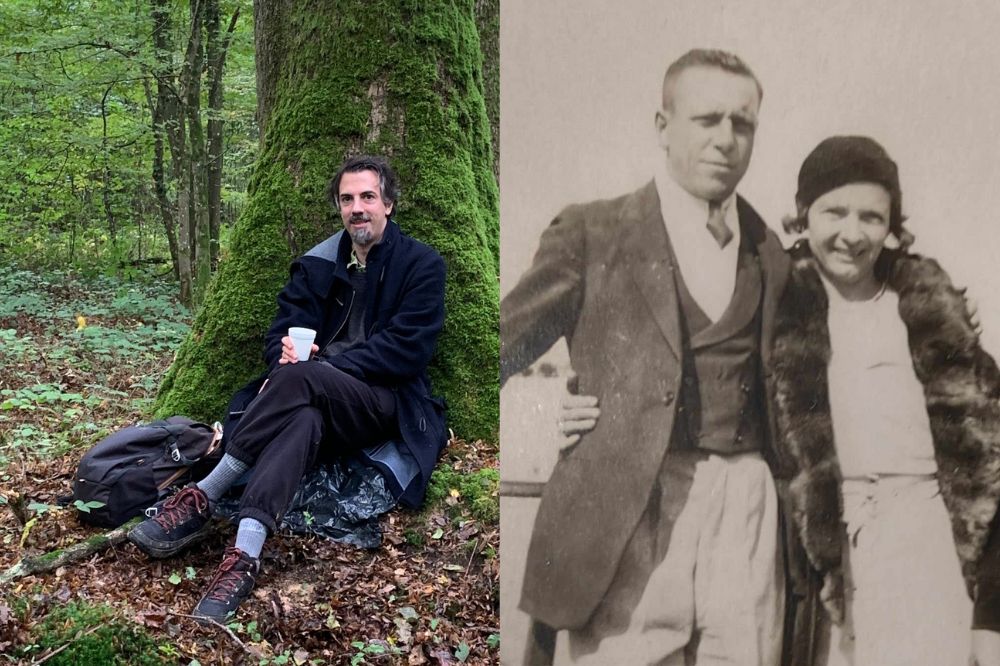
Stephen Price
Adrien Rodd was born in Paris and lectures at the University of Versailles. He began learning Cymraeg after growing curious about his Welsh great grandfather who fought in the First World War and settled in Normandy.
Adrien has always lived in France but was brought up bilingual (French and English) and spent part of the holidays with his mum’s relatives in Warwickshire.
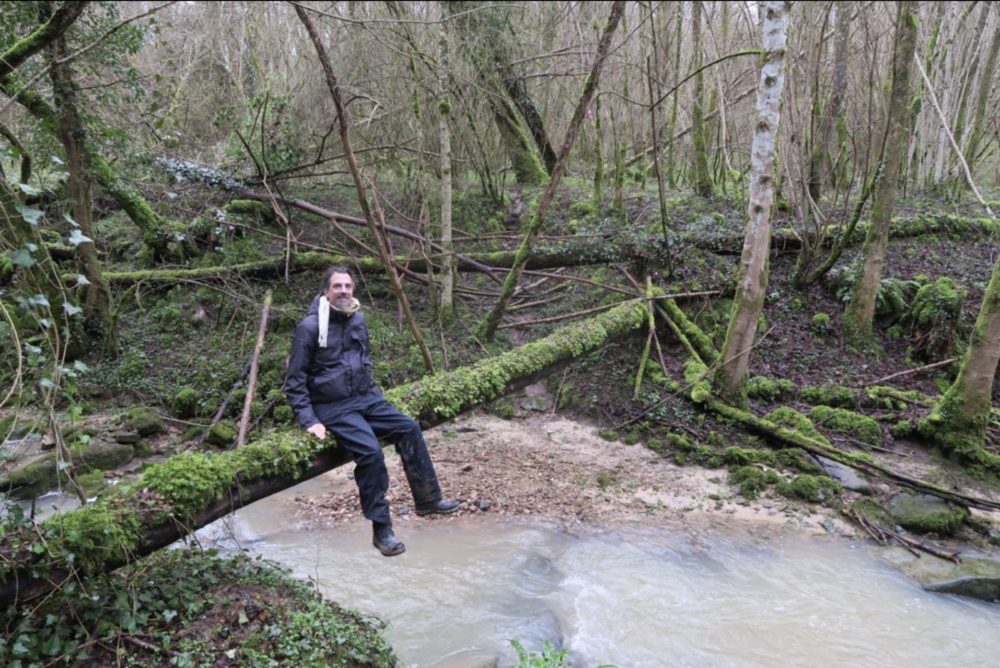
Being multilingual has helped Adrien throughout his life and career, and he currently teach classes in contemporary British and Commonwealth history and politics, in English, to French students at the University of Versailles.
Roots
Adrien’s great grandfather was a Welshman. He said: “My great grandfather fought in the British Army in France during the First World War, met a Frenchwoman, and came back to marry her and settle with her in Normandy.
“His name was Edward Arthur Rodd (or Arthur Edward Rodd), registered in the 1901 census as living at Minister Street in Cardiff and in the 1911 census as living at Somerset Street in Cardiff. He was born in late 1898 or early 1899 and died in 1940.
“I don’t know whether he actually spoke Welsh, but in any case he died young and my grandfather never learnt the language.
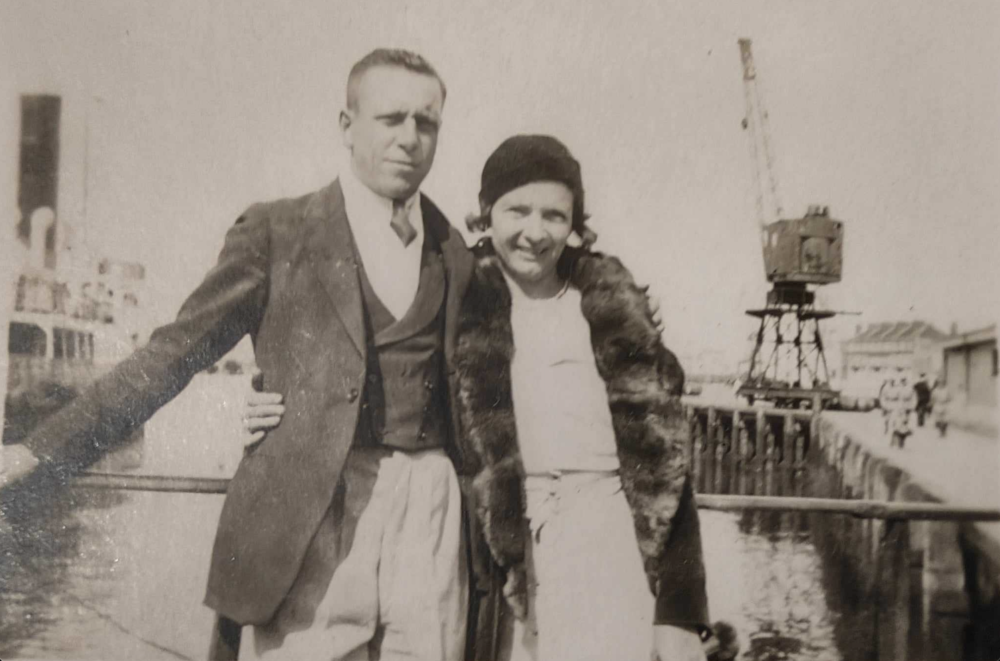
“I became vaguely intrigued by my family roots some twenty years ago, and got myself a book and CD from the “Teach Yourself” collection to learn Welsh by myself.
“I also bought myself a couple of books about Welsh history. Unfortunately, it was difficult to keep the language learning up in such an unstructured way, fitting it in here and there when I was busy with so many other things, so I didn’t get very far.
Duolingo
“Then last spring my sister told me about Duolingo, which she was using to learn Spanish. I had a look, found that it had a Welsh course, and got into it enthusiastically.
“More recently, I’ve also looked into my family tree. From what I can gather, the Rodds were Welsh originally, then several generations lived in England (in Somerset), then they moved back to Wales in the mid-19th century. My great-grandfather was born in Cardiff.
Goals
Adrien only began learning Welsh seriously ten months ago. He said: “For now I still consider myself a beginner
“Unfortunately, I haven’t got anyone here I can talk to in Welsh, and I wouldn’t really feel confident trying yet.
“When I’ve been learning for a little longer, my aim is to read the news in Welsh (on the BBC Cymru website), and watch videos in Welsh (subtitled in English) wherever I can find them.
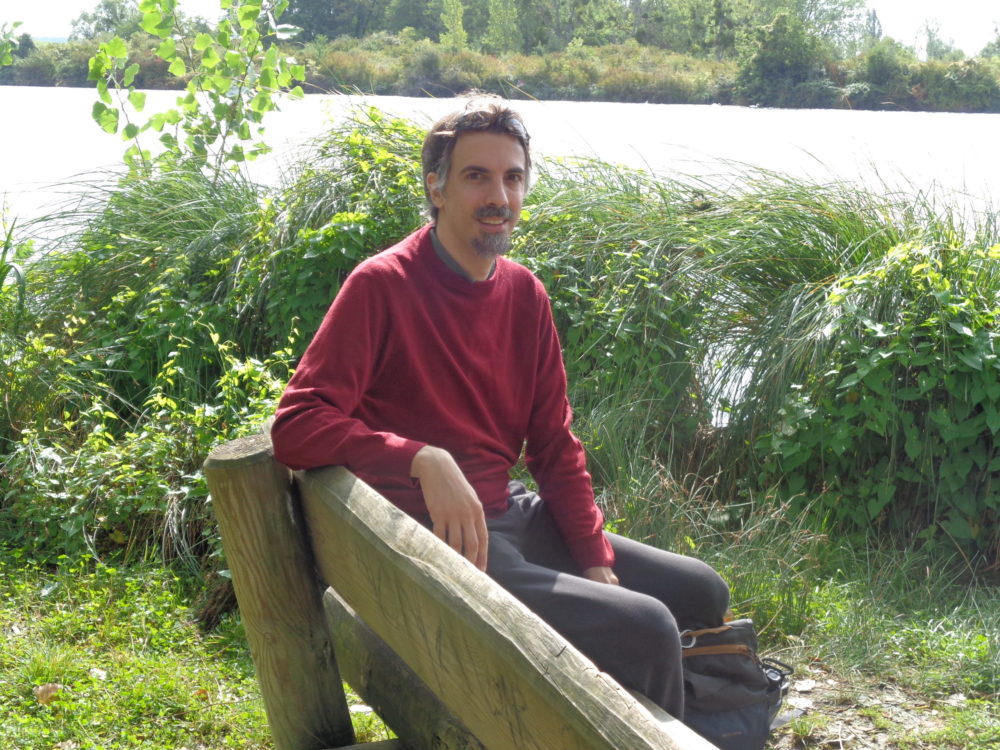
“I’m also looking forward to the day when I’ll be able to understand Hen Wlad fy Nhadau!
“When I feel confident enough, I hope to be able to speak Welsh in Wales, in particular in shops.
“Dw i ddim yn siarad Cymraeg yn dda iawn, ond dw i’n dysgu ag adolygu bob dydd!”
Despite visiting the UK often, Adrien has only visited Wales the once. He said: “I’ve been only one, almost twenty years ago now, at the time when I was first taking an interest.
“I visited Caernarfon and the surrounding countryside and coast.”
Learning journey
Duolingo is Adrien’s learning method of choice. He told Nation.Cymru: “Duolingo has one big advantage over what I had previously tried (namely just a book and CD): It all but compels users to log in every single day to learn and practice Welsh! It’s a good motivator.
“I’ve been using it for ten months now, and I’ve only missed one day during that time.
“It’s also got a reasonably broad diversity of exercises, and listening to sentences spoken by Welsh speakers, which I can repeat, is very helpful.
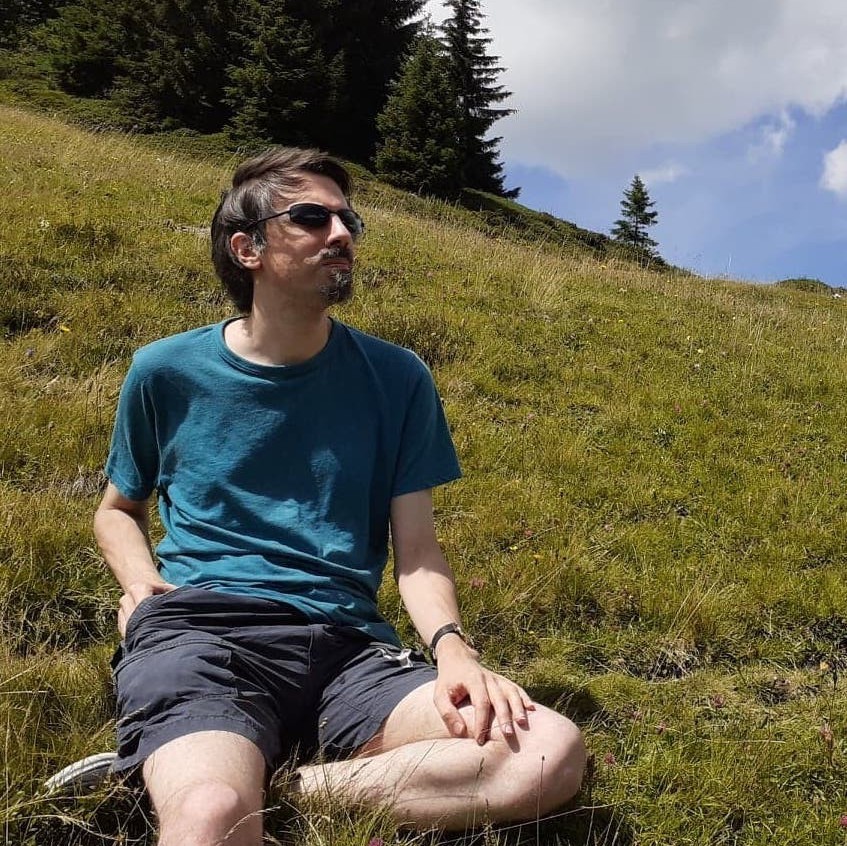
“The downside of Duolingo is that it doesn’t explain anything. It lets you figure out the grammar, the rules, the logic, by yourself.
“That’s not always a bad thing, as it forces me to think things through, but I’ve got myself a couple of books to help me learn what Duolingo doesn’t provide.
“Gareth King’s Basic Welsh: A Grammar and Workbook, which so far has been invaluable, and Stephen Owen Rule’s Parsnips and Owls, which is a translation into Welsh of the ‘story’ exercices that Duolingo provides for other languages (such as German or Spanish) but not Welsh.
“It comes with useful explanations on vocabulary and grammar, and some of the rules of informal spoken Welsh.”
Cymuned
Connecting with other Welsh speakers is high on Adrien’s learning pathway now.
He said: “It’s only very recently that I’ve found there’s actually a community of Welsh Duolingo learners on Facebook.
“I haven’t actually needed to ask them for help yet, but it’s nice to connect with people who are learning Welsh too.
“My main difficulty is that I’m not in Wales and I haven’t got anyone I can speak Welsh with. Which is one reason why I’ll be travelling to Wales when I feel that I know enough to hold at least a basic conversation
“I can string together sentences on various practical everyday topics, but when I hear Welsh spoken fluently, I really struggle.
“It’s still early days; I just need to be patient!”
Advice for others
Adrien has some advice for others that he’s learned along the way, saying: “My advice to anyone learning Welsh as a beginner on Duolingo would be: always repeat the sentences out loud, and if you stumble over pronunciation, repeat them again until you get it right.
“Don’t use the feature that lets you select words ready-written in Welsh; write them out fully by yourself, and simply use that feature to check your spelling, when you need to.
“And use a separate resource to learn grammar. In addition to books, I’ve used the BBC Welsh GCSEs pages ( https://www.bbc.co.uk/bitesize/subjects/z8qmhyc ), and this resource helpfully compiled specially for Duolingo users: https://duome.eu/tips/en/cy
“I would also say: Practice making sentences by yourself. Away from the screen, I randomly ask myself how I would say this or that sentence in Welsh, and I try to put it together.”

Finding out more about Welsh culture and history is also high on Adrien’s to-do list.
He said: “I’ll be quite excited to go back to Wales, this time perhaps with clearer ideas on what I want to see and do.
“I’ve always thought the Welsh accents are the most pleasant and melodious of the many accents in the UK, and the Welsh language has brought some interesting surprises.
“Verb conjugation is nothing like what it is in either English nor French (nor German, which I studied at school), so that in itself has stretched my mind to encompass new ways of thinking.
“I was pleasantly surprised to find that the Welsh word for ‘sad’ is ‘trist’, which makes me wonder what the history is behind its similarity with the French word ‘triste’!
“And I’ve yet to wrap my mind around why mutation leads to ‘yng Nghaerdydd’, when ‘yn Caerdydd’ would seem so much easier to pronounce!
“So for now, I’m enjoying gradually learning the language, but one day fairly soon I’m hoping it’ll be my gateway into discovering and enjoying lots more about Wales – from Welsh TV to visiting the country and finally trying what I’ve learned on people who can answer in Welsh!”
Dal ati, Adrien! Your great grandfather’s countryfolk couldn’t be more proud.
Click here for more info on DuoLingo.
Click here to find out more about SaySomethingInWelsh.
Click here for information on local Wales-based Welsh classes or London classes (Not exhaustive so please check social media and search engines for what’s on in your area)
Support our Nation today
For the price of a cup of coffee a month you can help us create an independent, not-for-profit, national news service for the people of Wales, by the people of Wales.






Bravo to Adrien – Da iawn ti a dal ati! Could someone steer him in the direction of Cymdeithas Cymry Paris-Ile de France which as well as having social evenings, used to at least in the late 1990’s/early 2000’s conduct Soirees Galloisantes in various peoples’ apartements in Central Paris on a monthly basis? The only pre-requisite that you told the host you were coming and than bring a bottle and something to eat and communicate in your three languages when you arrived. Further, there might be someone who is actively teaching Cymraeg on a freelance basis in Paris – often… Read more »
Da iawn Adrien! Dal ati, brawd!!!